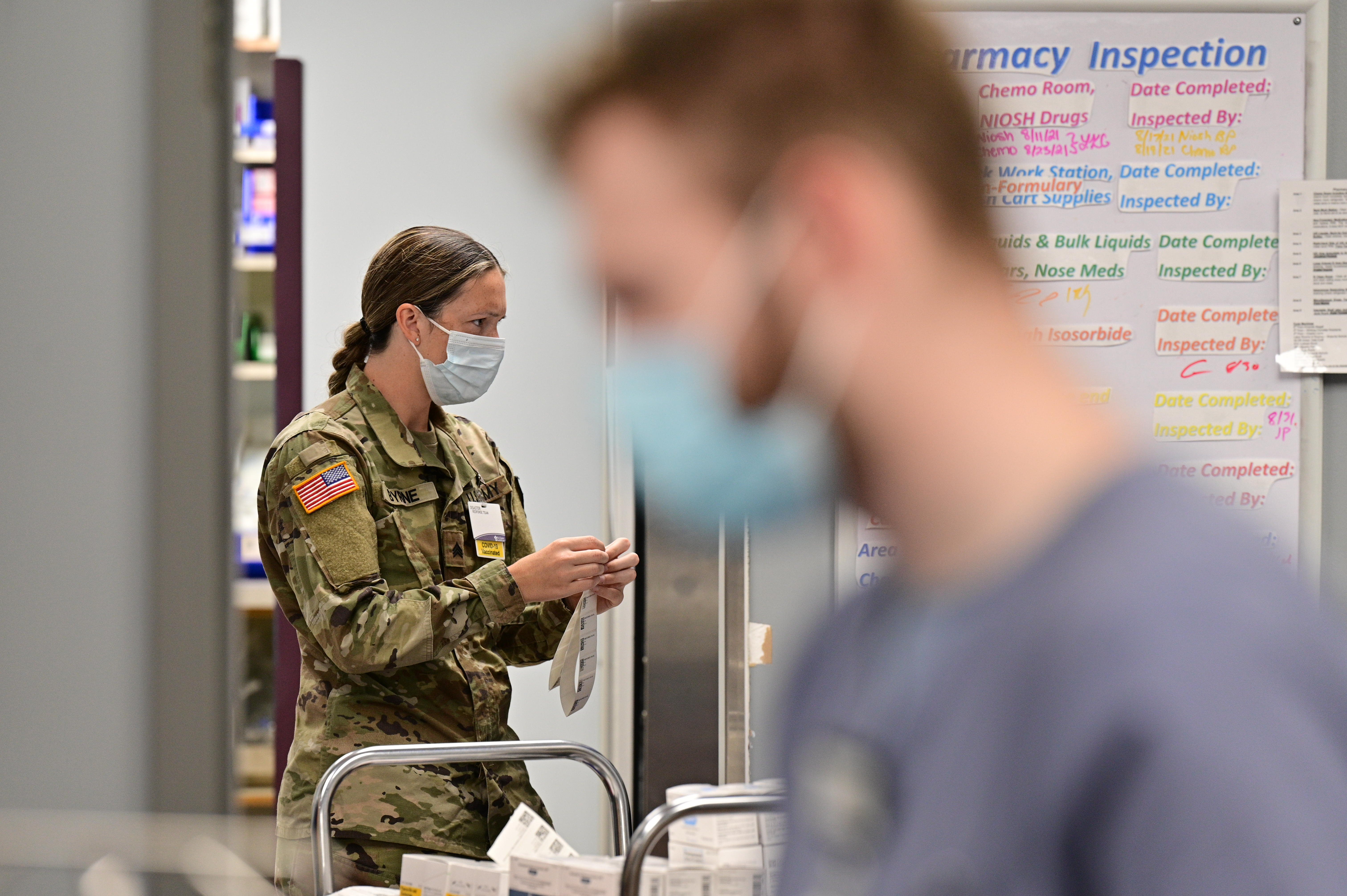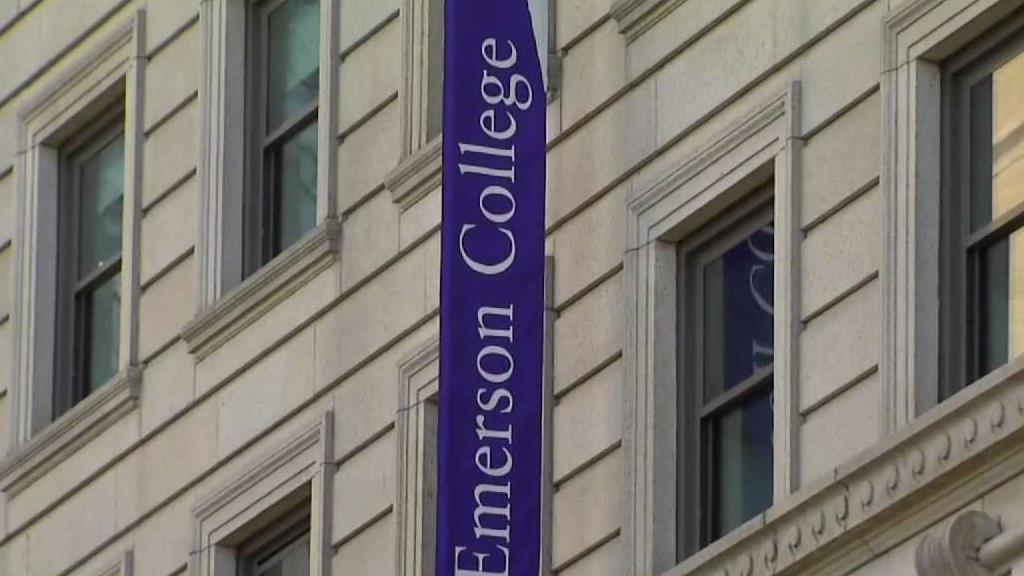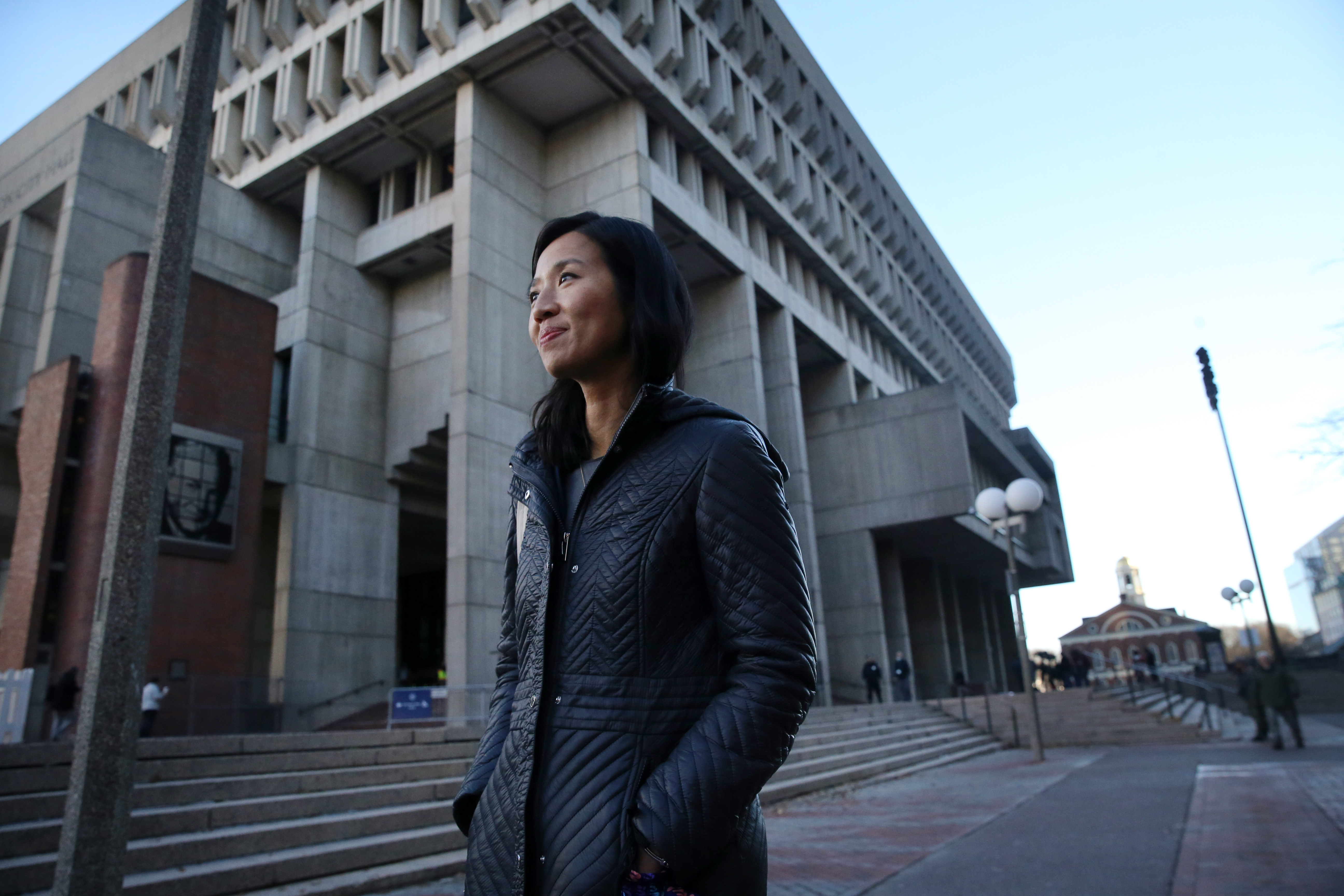From effectiveness against the omicron variant to booster shots and more, how do the COVID vaccines compare to each other and which is best for you?
There are various reasons why someone might choose a particular vaccine, but according to medical experts, the most important thing is getting vaccinated and getting a booster dose.
Still, it's a question many ask as they prepare for their vaccination.
According to medical experts, the three vaccines currently available in the U.S. each offer protection against COVID.
Get Boston local news, weather forecasts, lifestyle and entertainment stories to your inbox. Sign up for NBC Boston’s newsletters.
Here's a breakdown of what we know so far about each vaccine:
How effective are the COVID vaccines?
Vaccine efficacy has been a main question as both the omicron and delta variants continue to spread around the country and the globe.
Health experts have said that a majority of hospitalizations and deaths associated with the delta variant in recent months have largely been in unvaccinated individuals. The CDC has said the risk of infection is 8 times higher in the unvaccinated than the vaccinated, and the risk of hospitalization or death is 25 times higher.
But is one better than the other at protecting against breakthrough infections in vaccinated populations?
Scientists don't yet know how big a threat the omicron variant really is or if it will affect protection given from current vaccines. Currently the extra-contagious delta variant is responsible for most of the COVID-19 cases in the U.S. and other countries.
Early cases of the omicron variant have appeared in fully vaccinated residents, some of whom also received booster doses, though symptoms have so far remained mild.
The omicron variant, discovered late last month, carries an unusually large number of mutations and scientists are racing to learn how easily it spreads, whether it causes illness that is more serious or milder than other coronavirus types — and how much it might evade the protection of prior vaccinations.
Based on the latest data, omicron appears to be twice as contagious the delta variant.
Pfizer and BioNTech already are working to create an omicron-specific vaccine in case it’s needed.
Moderna's Chief Medical Officer Paul Burton said the vaccine maker could also roll out a reformulated vaccine against the omicron coronavirus variant early next year.
Pfizer said that while two doses of its vaccine may not be protective enough to prevent infection, lab tests showed a booster shot increased by 25-fold people's levels of virus-fighting antibodies.
Meanwhile, the risk of suffering a breakthrough COVID-19 infection with the delta variant after being fully vaccinated with the Moderna vaccine may be much lower than the risk for those who received the Pfizer vaccine, according to new Mayo Clinic study released in August.
The study found that in July in Florida, where COVID cases were at an all-time high and the delta variant was prevalent, the risk of a breakthrough case was 60% lower for Moderna recipients as compared to Pfizer recipients.
Similarly, in Minnesota that same month, the authors found that the Moderna vaccine was 76% effective at preventing infection, but the Pfizer vaccine was 42% effective.
The authors of the study found that while both vaccines "strongly protect" against severe disease the delta variant, the difference appears to be more about whether people get infected at all in the first place.
While Moderna's two-dose vaccine remained "durable" six months after the second shot, immunity against the coronavirus will continue to wane and eventually diminish vaccine efficacy, the company has said.
The company said its vaccine is 93% effective six months after the second dose. By comparison, Pfizer and BioNTech said their vaccine efficacy declined to around 84% after six months.
Johnson & Johnson reported over the summer that data showed their vaccine "generated strong, persistent activity against the rapidly spreading delta variant and other highly prevalent SARS-CoV-2 viral variants."
What about booster shots?
Health officials are now strongly encouraging booster shots of all three COVID vaccines for any U.S. adult.
Last month, the Center for Disease Control and Prevention cleared the way for all adults to get a COVID-19 booster shot, if they want one. But now, with the emergence of the new omicron variant, the CDC is intensifying that message — saying those over 18 years old should get one.
"Everyone ages 18 and older should get a booster shot ... when they are six months after their initial Pfizer or Moderna series," CDC Director Dr. Rochelle Walensky said in a statement Monday.
"The recent emergence of the omicron variant (B.1.1.529) further emphasizes the importance of vaccination, boosters, and prevention efforts needed to protect against COVID-19," she added.
In New England, where omicron cases have been identified in Massachusetts and Connecticut, officials continue pushing for residents to get vaccinated against COVID-19 and get their booster shots as soon as they are eligible, meaning six months after Moderna or Pfizer's vaccine or two months after the Johnson & Johnson vaccine.
Pfizer said Wednesday that a booster dose of its COVID-19 vaccine may offer important protection against the new omicron variant even though the initial two doses appear significantly less effective.
Similar data from Moderna and Johnson & Johnson is expected to be released in the coming days.
Both Pfizer and Moderna have said they are working on omicron-specific vaccines that could be used as booster doses against the new variant.
Pfizer is also expected to seek emergency approval from the Food and Drug Administration for 16 and 17-year-olds to get a third COVID-19 booster shot. If it is granted emergency use authorization, the additional Pfizer-BioNTech shot would be the first vaccine booster for teens younger than 18.
“What we need to do is add more layers of protection,” Dr. Julie Vaishampayan of the Infectious Diseases Society of America told the Associated Press.
That's especially important with holiday travel and gatherings around the corner.
A booster shot is one of those layers. The added dose triggers a big jump in virus-fighting antibodies. Even if the antibodies don't prove quite as effective against omicron as they are against other variants, simply having more of them might compensate -- in addition to bolstering protection against delta.
How are the vaccines different?
Arguably one of the biggest difference between the three vaccines is the number of doses needed. The Johnson & Johnson vaccine requires just one dose, while both Pfizer's and Moderna's vaccines are two shots.
The Pfizer-BioNTech and Moderna vaccines also differ from traditional vaccines in their use of mRNA. Instead of introducing a weakened or an inactivated germ into your body, this vaccine injects mRNA, the genetic material that our cells read to make proteins, into your upper arm muscle. It teaches your body how to make the protein that triggers antibody production so if the real virus later enters your body, your immune system will recognize it, according to the federal Centers for Disease Control and Prevention.
Unlike the Pfizer and Moderna shots, the J&J vaccine uses a cold virus, called an adenovirus, to carry the spike gene into the body. J&J uses a human adenovirus to create its vaccine while a similar vaccine not yet approved in the U.S., AstraZeneca, uses a chimpanzee version.
J&J’s shot uses a cold virus like a Trojan horse to carry the spike gene into the body, where cells make harmless copies of the protein to prime the immune system in case the real virus comes along. It’s the same technology the company used in making an Ebola vaccine.
Does age matter for vaccinations?
Pfizer's vaccine is also currently the only vaccine authorized for emergency use in children as young as 5. Both Moderna and J&J's vaccines can only be used on people 18 and older.
Both Pfizer and Moderna have also started studies in the U.S. surrounding the vaccine and children as young as 6 months.
What are the side effects for each vaccine?
According to Pfizer, about 3.8% of their clinical trial participants experienced fatigue as a side effect and 2% got a headache. The side effects remain similar among young adults and adolescents.
Younger teens receive the same vaccine dosage as adults and have reported the same side effects, mostly sore arms and flu-like fever, chills or aches that signal a revved-up immune system, particularly after the second dose. However, the CDC is also looking into rare reports of mild myocarditis in some younger recipients, though it remains unclear if the condition is in fact linked to the vaccine.
Children as young as 5 are experiencing less side effects overall, experts say. But when children do encounter side effects, they're typically similar to the ones experienced by adults and usually after the second dose, too.
Moderna says 9.7% of their participants felt fatigued and 4.5% got a headache.
Like Pfizer and Moderna's COVID-19 vaccines, the main side effects of the J&J shot are pain at the injection site and flu-like fever, fatigue and headache. These side effects usually start within a day or two of getting the vaccine, according to the CDC.
But the Johnson & Johnson vaccine was previously paused by U.S. regulators as they investigated reports of potentially dangerous blood clots known as cerebral venous sinus thrombosis, or CVST, in a small number of recipients.
The CDC and FDA said in April they were investigating unusual clots in six women that occurred 6 to 13 days after vaccination. All six cases were in women between the ages of 18 and 48. At the time, more than 6.8 million doses of the J&J vaccine had been administered in the U.S., the vast majority with no or mild side effects.
Ten days later, the agencies recommended resuming use of the vaccine, stating the benefits of the inoculations outweighed their risks.
The CDC's advisory panel didn't recommend restricting use of the vaccine to a particular age or gender, but did propose the possibility of adding a warning label for women under the age of 50.
There have also been reported cases of a rare, but serious, neurological disorder following Johnson & Johnson COVID-19 vaccinations, but preliminary data suggests the benefits of the shots still outweigh the risks, the CDC said.
As of late July, there were 8.1 cases of Guillain-Barre syndrome per 1 million doses, which is higher than expected in the general population and close to eight times the rate seen in Pfizer's and Moderna's shots, according to slides published ahead of a presentation before the CDC's Advisory Committee on Immunization Practices. Guillain-Barre is a rare neurological disorder in which the body's immune system mistakenly attacks part of the nervous system.
The data doesn't show a similar pattern with Pfizer's or Moderna's vaccines, the U.S. agency said. By comparison, there has been roughly one case of Guillain-Barre per million doses for people who received either of the two-dose mRNA vaccines, according to the agency.
Rare side effects, which scientists say are common, have also been detected in Pfizer's and Moderna's vaccines.
In late June, the FDA added a warning to patient and provider fact sheets for the mRNA vaccines to indicate a rare risk of heart inflammation. Both vaccines now include a warning about myocarditis and pericarditis after the second dose. Myocarditis is the inflammation of the heart muscle and pericarditis is the inflammation of the tissue surrounding the heart. Health officials said the benefits of receiving the vaccines still outweigh any risk.
The CDC reports the most common side effects for all three authorized vaccines is at the injection site. They include:
- Pain
- Redness
- Swelling
Common side effects in the body include:
- Tiredness
- Headache
- Muscle pain
- Chills
- Fever
- Nausea
"The Pfizer-BioNTech COVID-19 Vaccine and Moderna COVID-19 Vaccine both need 2 shots in order to get the most protection," the CDC states. "You should get the second shot even if you have side effects after the first shot, unless a vaccination provider or your doctor tells you not to get it."
The Centers for Disease Control and Prevention advises people to stick around for 15 minutes after vaccination, and those with a history of other allergies for 30 minutes, so they can be monitored and treated immediately if they have a reaction.
Are side effects more likely after the first or second dose?
With the two-shot vaccines, people are more likely to report side effects after their second dose, experts have said.
According to the CDC, side effects after your second shot "may be more intense than the ones you experienced after your first shot."
"These side effects are normal signs that your body is building protection and should go away within a few days," the CDC states.
In trials of both the Moderna and Pfizer vaccines, more people experienced side effects after the second dose.
But that doesn't mean that you shouldn't get your second shot if you get side effects after your first, experts say.
The CDC also noted that both shots are needed.
"The Pfizer-BioNTech COVID-19 Vaccine and Moderna COVID-19 Vaccine both need 2 shots in order to get the most protection," the CDC states. "You should get the second shot even if you have side effects after the first shot, unless a vaccination provider or your doctor tells you not to get it."
What about side effects with booster shots?
The CDC stated that side effects with the third shot "were similar to that of the two-dose series."
The most common symptoms include fatigue and pain at the injection site, but "most symptoms were mild to moderate."
As with previous doses of the vaccine, the CDC notes that, "serious side effects are rare, but may occur."
Are the COVID vaccines FDA approved?
The FDA has granted Pfizer and BioNTech full U.S. approval of their COVID-19 vaccine – becoming the first in the U.S. to win the coveted designation.
The companies submitted a Biologics License Application to the FDA on May 7 for patients age 16 and up. That application was approved in August.
The vaccine is also still available under emergency use authorization (EUA) for people as young as 5.
While Pfizer is currently the only vaccine to be fully approved, it is also the only vaccine authorized for emergency use in adolescents and children, though Moderna has also filed for such approval.
Emergency use authorization allows a vaccine to become available prior to full approval in the case of public health emergencies. The FDA can revoke the EUA at any time.
Moderna's two-shot and Johnson & Johnson's single-shot vaccines continue to be available under an emergency use authorization as well for those over the age of 18.
Moderna also announced in June that it had begun a “rolling submission” to the FDA of data from its studies of the two-dose mRNA vaccine.
“We are pleased to announce this important step in the U.S. regulatory process for a Biologics License Application (BLA) of our COVID-19 vaccine,” Moderna CEO Stephane Bancel said in a press release at the time. “We look forward to working with the FDA and will continue to submit data from our Phase 3 study and complete the rolling submission.”
Large-scale studies of the shots continued after Moderna’s emergency authorization. The FDA will scrutinize the information to see if the vaccine meets stringent criteria for full licensure.




